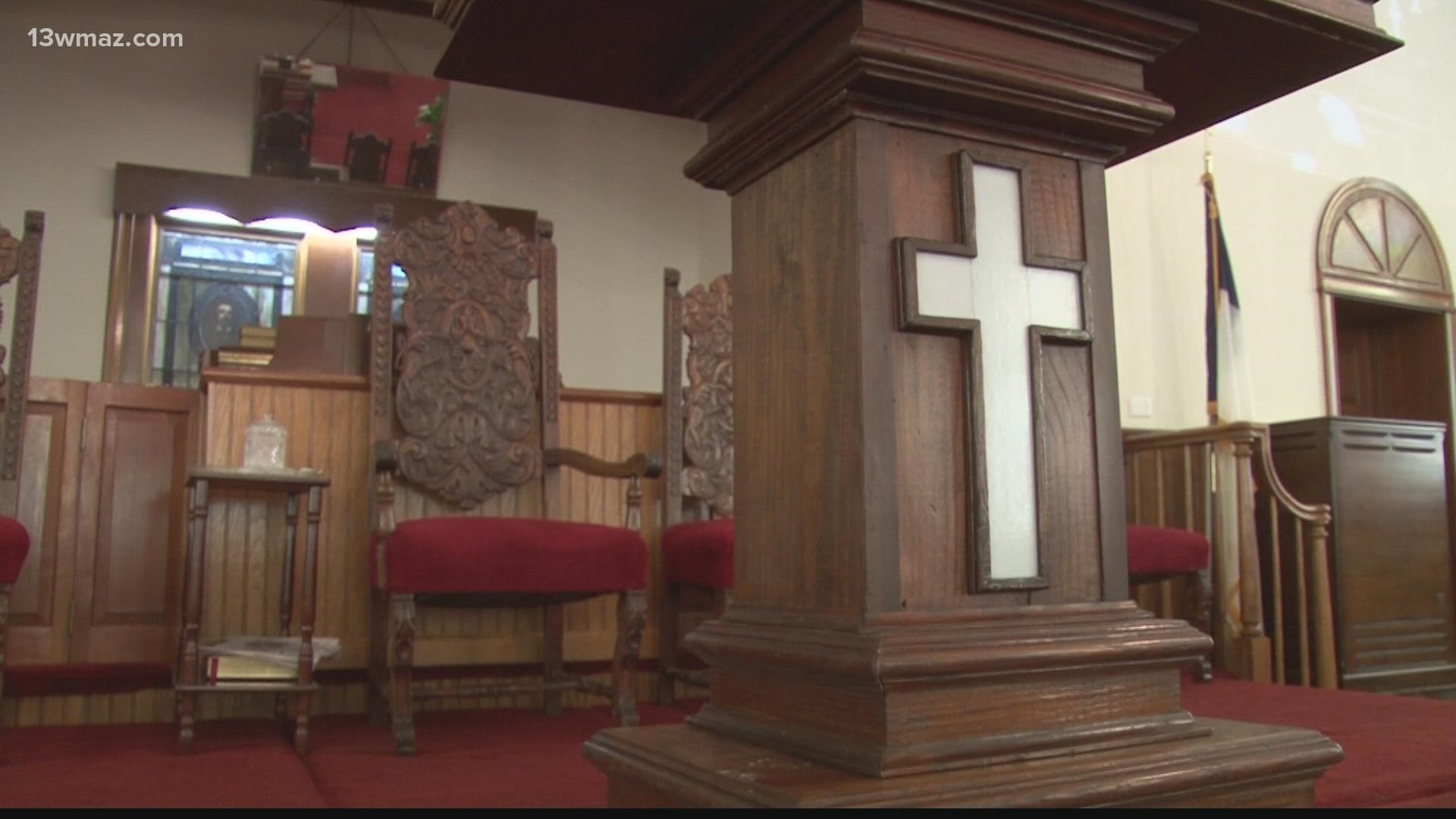DUBLIN, Ga. — To celebrate Black History Month, we'll be visiting locations across Central Georgia that speak to the heart and soul of the African-American community.
Founded in 1867 under the leadership of Rev. Fred Robinson, First African Baptist Church has been standing in the same location in downtown Dublin for over 150 years. That makes it the oldest African-American church in the city.
At the time, Black people would worship in the balcony of majority White churches, but things changed with the signing of the Emancipation Proclamation on Jan. 1, 1863.
“At the end of slavery after the Blacks found out that they were free, some of the leaders in the Black community decided that they wanted to form their own churches,” said Deacon Jerry Davis.
The church was originally founded with the help of the majority White church, First Baptist, located just three blocks north. They helped by donating the land and funds for the church to be built on. There is also a window in the far corner of the church donated to First African by its mother congregation.
The stained glass windows of the church were imported from an artist in Italy and they feature many of the founding members of First African Baptist whose families still worship in the church of their ancestors.
“It wasn’t a whole lot of churches at the time, so this was a place where people could come and they could worship. I’m quite sure at the time they were in need of a lot of services and this church would be able to provide services that was needed at that time,” said Davis.
Deacon Earnest Wade Jr. has been a member of First African Baptist for over 50 years.
“It was the pillar of the community and at that time it was basically full every Sunday because it was basically the only place you could go for social life and also religious life,” said Wade Jr.
The church not only boasts an impact on the Dublin community, but it has also had an impact on our nation.
In the spring 1944, a young Rev. Dr. Martin Luther King Jr. gave his first public speech from the pulpit of First African Baptist Church.
King was just a student at the Booker T. Washington High School in Atlanta when the Colored Elks Clubs of Georgia was hosting an oratorical contest. He read an essay called “The Negro and the Constitution” where he tackled the contradiction between the nation's ideals of liberty and freedom with the current oppressions faced by Black people in America.
The podium where King first spoke continues to stand tall in the pulpit of First African Baptist.
Wade says King’s speech was like a bottle rocket for the advancement of Black people. He says it was the beginning of a better world as far as race relations.
“When I came to Dublin, everything was segregated, but he made that speech... and he took us as far as he could take us,” Wade said.
Davis says he feels he has a duty to keep the church’s history and impact alive.
"I feel a tremendous responsibility to make sure that we keep this church going at the present time to preserve the history that our forefathers, our mothers and fathers, just put a lot of sweat equity to establish and we feel a tremendous responsibility to them as well to propel it forward,” said Davis.
Across the street, visitors can see a monument to King’s historic speech that features a mural and sculpture by Georgia artist Corey Barksdale.
There's also an audio tour where visitors can hear a young man read King’s speech.
First African Baptist plans to continue the tradition of holding a oratorical contest (virtually) in April.
RELATED ARTICLES:

